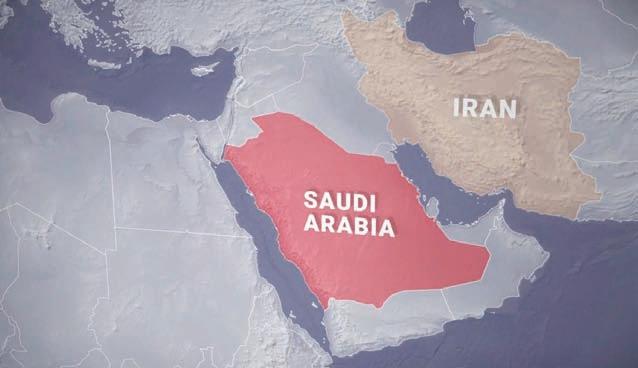
70 minute read
8 200
Controversy on electronic voting
Need for national consensus Shopkeepers vs ordinary mortals
Advertisement
PM Imran Khan has a new bee in his bonnet. Without realizing the peculiar social conditions in Pakistan like a weak democratic culture, absence of universal literacy, prevalence of conspiracy theories and people being used to voting through paper ballots, Mr Khan has decided to hold next elections through electronic voting system being used in the United States. On Saturday an all too pliable President issued an ordinance authorizing and directing the eCP to place orders for electronic Voting Machines (eVMs) and enable overseas Pakistanis to exercise their right to vote in the next general elections. The PM has expressed dissatisfaction over the delay in the implementation of his latest brainwave.
The eVMs can no doubt help prepare the election results in a short time. There are however solid political reasons against their abrupt introduction at the national level in next elections. The system had to be abandoned by some of the developed european countries because it failed to inspire confidence in voters and led to a return to paper ballots. This will be all the more likely to happen in a country like Pakistan where the vast majority of voters doesn’t know what happens inside the chipset and software and who have gone through the bitter experience of the failure of the Results Transmission System (RTS) in the 2018 polls. There is no way to check rigging through the electronic voting as an eVM cannot prevent ballot stuffing, capturing booths in polling stations, impersonation and other kinds of rigging. eVMs can only be introduced at a prohibitive cost that the country cannot afford. Pakistan will need at least 350,000 machines, each costing about Rs 150,000, with the total cost amounting to about Rs 52 billion for the machines alone.About 50,000 machines will be required as backup. electronic voting requires capital spending every few years to update the equipment as well as annual spending for maintenance, security and supplies. Funds would also be needed for the storage, maintenance, logistics, training and transportation.
The introduction of eVMs being a political issue, there is a need to develop consensus over them in Parliament after a thorough discussion in the concerned committees and debate. The eCP needs to be asked to provide inputs to the parliamentarians. The government must meanwhile avoid a hasty decision on the issue.
South Asian health crisis
No match! Until now
HASAN AFTAB SAEED
One hears that the French language offers a rich array to choose from when it comes to insulting phrases. That napoleon, who was an extremely eloquent man with all powers of the French expression at his disposal, chose to show his contempt for england by calling it a nation of shopkeepers tells its own story. According to some accounts, it was Adam Smith or Bertrand Barère who originally coined the phrase. Well, why split hairs when there is no controversy regarding the epithet (‘shopkeepers’)?
It is pleasant to imagine a parallel universe where shopkeepers do not exist, but in our own universe death, taxes and shopkeepers happen to be facts of life that cannot simply be wished away. no matter how minimalist one’s lifestyle may be, one still needs to occasionally buy things. encountering shopkeepers (and getting fleeced) is an everyday experience for married folks.
But let us not be overly harsh on shopkeepers. Just as some men must become miners and some others undertakers, some men must take up shopkeeping. All these professions come with their occupational hazards. The profit motive is not something that is known to bring out the best in men. And, of course, not all shopkeepers are evil. I am convinced that it is only 95% of shopkeepers that spoil the reputation of the rest.
The line between lying and fine arts such as advertising and salesmanship is notoriously thin. We all routinely experience this. A shopkeeper quotes you prices of two air-conditioners. You ask him the reason for the price difference. Accustomed to thinking on his feet, he explains that as opposed to the cheaper variety the costlier one ensures that the air stream after moving straight for a while diverges to the left and to the right, cooling the room quicker (he demonstrates the elaborate process using his hands and arms).
If you believe the story, you prove yourself a fool to him (and to yourself). Storming off after telling him that it is a load of manure no doubt makes for a tempting dramatic exit. Practically speaking however, you will still have to buy it from some other shop with a proprietor who is likely to be as imaginative (and unscrupulous), if not more. The theory is straightforward enough: visit several shops and buy from the one that offers the most reasonable deal.Alas, life is rarely that simple. In practice, all shops are run by shopkeepers, who – even if they do not formally belong to a cartel – have a shrewd idea about the price quoted by others. So, there is no good option, really.
Cut to three hours later. The AC has been delivered and two technicians have turned up to install it. They have instructions to use more copper tubing than is required to connect the indoor and outdoor units since it is you who pays for it per metre. But they cannot tell you that. You can swear that you read somewhere that the longer the pipes the higher the losses, but the technicians tell you an elaborate story about the need to allow at least two ‘safety ’ loops to prevent leakage on account of the ‘dangerous back pressure of the refrigerant’ . You decide to throw in your lot with science as you recall it and tell them to forget about the ‘safety ’ loops. now they play their trump card: ‘We will do so if you insist, but do not blame us if something goes wrong. ’ You clearly have no answer to this. For you can be certain that if they say something could go wrong, they will ensure that something will go wrong. It is never the greatest idea to argue with your barber when he has a razor in his hand or with men installing your AC. The odds are stacked against you, and in favour of shopkeepers. You just cannot win.
Or so I thought for many years before I devised my fool-proof strategy. Which is as follows: The only way to beat shopkeepers is to play along with them. Accept in good faith whatever fairytale they tell you. This admittedly is a tough ask, but it becomes easier with practice. (Recall that it is not as if you have many other options under the circumstances.) It will save you much trouble, besides doing wonders for your blood pressure. Ask the shopkeeper his buying price. Often you do not even need to ask because he will volunteer the information, telling you that he is taking only so much profit on it (an unbelievably reasonable figure). Your job is done, so proceed to purchase the item. In case he is being truthful (a slim chance), you have the satisfaction of having made a good deal. More probably however, you will have a nice surprise waiting for you in the next life. I like to refer to it as my special ‘shopkeeper’ account for the Hereafter, becoming fatter and fatter every year, secure with the Almighty.
Last year in a gathering at a friend’s place the conversation turned to retailers. I took the opportunity to present my abovementioned approach to shopping. I could tell from facial expressions that there were those who thought it was a brilliant solution to the shopkeeper problem (three men); and those who were amused by what they thought was an intriguing idea (five men). There was one guest however – a perfect stranger – who started showing signs of extreme perturbation. (It was not long before I found out that the gentleman belonged to the shopkeeper fraternity. no wonder he was neither impressed nor amused.) I was barely done explaining the outlines of my ‘shopkeeper’ account when he could contain himself no longer. He vehemently disputed that any such account existed. I asked him how he could be so sure when he had nothing to do with the said account. He explained that my whole approach was unfair because it left shopkeepers no option but to lie to me. It is not often that I find myself lost for words. I admit that that was one such occasion.
The author is a connoisseur of music, literature, and food (but not drinks). He can be reached at www.facebook.com/hasanaftabsaeed
Covid continues to ravage an entire region
THeRe seems to be no end in sight to the ongoing lethal wave of the coronavirus that has hit South Asia.Amutation of the Covid-19 virus, upgraded to the status “ variant of concern” by the UK and dubbed as the “double-mutant” has wreaked havoc in India.At the moment, the daily number of new cases and deaths are averaging 400,000 and 4000 daily.According to the WHO, last week India accounted for 46 per cent of global cases and 25 percent of deaths. These astronomical numbers have caused the country ’s health system to completely collapse with a severe shortage of beds, ventilators and most worryingly, oxygen. Cremation sites have queues that force families to wait for hours to perform the last rights of their loved ones. India is now going through the worst humanitarian crisis in its history. What is more frightening is the warning issued by some experts that this may only be the beginning and could continue for a considerable period of time. The spillover from India has now hit nepal that saw a 137 percent increase in cases over a week and is now reporting very similar numbers, forcing the country to go into a full lockdown. Sri Lanka and Bangladesh have also detected cases of the Indian variant. The virality and deadliness of this new mutation has all but eradicated the progress made in terms of vaccinating the population on the road to normalcy.
Pakistan is smack in the middle of all this and thankfully the Indian strain has not made it across our borders so far. nonetheless, the ongoing third wave in the country has surpassed all statistics posted by the first one. The government, rather reluctantly, has essentially cancelled eid by placing a weeklong lockdown in the worst hit provinces of Punjab and KP throughout the holidays. The government must make the most of its current position by solidifying it further, restricting inward travel from regional countries that could introduce the new variant in Pakistan.Additionally, it must ramp up its vaccination drive to immunize as much of the population as possible to keep pressure off hospitals and reach herd immunity. Whatever help that can be provided to regional countries should be offered while keeping in view our resource restrictions. Pakistan could also become another Covid-19 disaster zone if the government mishandles the situation. extreme caution should be taken for the next few months.

Dedicated to the legacy of the late Hameed Nizami Arif Nizami

SAlmAN muNir
ALL living creatures, including human beings, have to make a choice when confronted: fight or flight. Introduced by the physiologist Walter Bradford Cannon, it means that when confronted with a situation that evokes fear, pain, anger or anxiety and a person must choose a fight-or-flight response. This thought came to my mind a few days ago during and after the hearing of the case of Justice Qazi Faez Isa before a ten-member bench of the Supreme Court of Pakistan.This must be a rare occasion where a sitting judge of the Supreme Court argued his own case before his colleagues. This is called courage. William M. Kunstler writes in his book “The Case For Courage, ” the “lawyers, despite their addiction to conflict, share in common with the rest of mankind a natural resistance to involving themselves in situations fraught with grave consequences to their pocketbooks, their reputations and their peace of mind. ” What do you do when the fight is thrust upon you?
Of course then you fight. That is what Justice Qazi Faez Isa did. Some might argue what is so great about it? If the fight is thrust upon you then it is natural to fight, even to throw the first punch. I beg to differ.Without taking into account the long history of mankind and just focusing on the events in Pakistan since 2000, we find some shining examples of courage and some foxy, even Machiavellian examples of cowardice. Our former three-time Prime Minister nawaz Sharif stands out when we look at cases of flight. After the army coup in 1999, believing in the age old saying that running away makes sure you live and fight another day, nawaz Sharif chose in 2000 to leave Pakistan upon an undertaking and following a Presidential pardon. However, nawaz Sharif claimed during all those years that he was forced to leave the country. To prove this he approached the Supreme Court, which in it’s October 17, 2007 verdict stated “The former Prime Minister’s release from prison and his journey to SaudiArabia after getting a Presidential pardon due to an undertaking could not be described as forced exile. ” The same decision, however, allowed nawaz Sharif to return to Pakistan under Article 15 of the Constitution. This gave him an opportunity to fight another day.
The first shining example of courage is that of a judge of the Supreme Court. Former Chief Justice Iftikhar Muhammad Chaudhry, showing exemplary courage and resolve to fight, refused to resign when forced by the powers that were running the country in 2007. President Pervez Musharraf along with two or three other three-star generals (all in full army uniform) and perhaps Prime Minister ShaukatAziz, also present in the room had called over the 20th Chief Justice of the Supreme Court to the Army House. The purpose of the meeting was to read a list of charges and ask Chief Justice Iftikhar Muhammad Chaudhry to resign. This show of power did not impress the Chief Justice and he walked out of the meeting without resigning with his head high. President Musharraf made the Chief Justice non-functional for refusing to resign. The lawyers all over the country then rose in his support and that of the independence of judiciary. The lawyers’ movement turned into a mass movement and after some two years the Chief Justice resumed his office. Chief Justice could have easily gone in exile, chosen another high office, or come to a deal with the establishment. Over all such options, he chose to stay and fight. What a contrast to the former three-time prime minister whose party and election symbol is a lion. The lions of the world must have protested at this injustice to their courage and bravery.
The next case of flight, closely resembling to that of the former three-time prime minister, that must be mentioned is of the former President Pervez Musharraf. Musharraf, a self-styled Otto Skorzeny, was the first dictator facing death penalty in a treason case for imposing emergency in november 2007. This emergency led to the suspension of the Constitution, and detention of the judges of the superior courts. In 2009, he went into self-exile for a period of four years until he returned in March 2013 to contest election. After he was disqualified to contest election, he desperately wanted to leave the country on medical grounds and to look after his ailing mother in Dubai. However his name was on exit Control List and could not leave the country. In early June 2014, the Sindh High Court ordered removal of Musharraf’s name from the exit control list so he could go abroad and also gave two weeks time to the Federal government to file an appeal against its decision. The government approached the Supreme Court, which struck down the order of Sindh High Court in late June 2014. However, citing medical treatment and vowing to return to the country, in March 2016 Musharraf again went into self-exile and now lives in Dubai. nawaz Sharif, not used to living in prisons, this time after he was disqualified and jailed by the Supreme Court, he put up a great farce with the help of his party and seemingly that of the PTI’s doctors and some ministers. Fleeing, it appears comes naturally to him.Through the rigmarole of medical checkups, laboratory testing and political game-playing he again managed to flee. now he lives in London and has been declared an absconder by the courts. Like Musharraf, he does not plan to return to Pakistan anytime soon. He lives to fight another day, again.
In this backdrop of flight, it was pleasant to see a fight taken to Justice Qazi Faez Isa, earlier by the government, and now by the Supreme Court itself, being actually fought. This fight was won by Justice Isa through his review petition challenging the directions given by the full bench of the Supreme Court to FBR to probe his family. Justice Isa could have fled too like Musharraf and nawaz Sharif by compromising or becoming sick. Instead he chose to stay and fight like Iftikhar Chaudhry. During the course of the proceedings in which Justice Isa argued his case, it became clear that the other side was represented by lawyers who were either ill prepared or lacked the basic understanding of the law, sometimes even narrating the wrong judgement.This is exactly what happens when you do not have a case.You prolong your arguments in the hope that something might just come out of it. In this case that something was retirement of one of the judges on the full bench. Like always one party wanted to make haste while the other party was on a go-slow approach.
We cannot even imagine the burden that was on Justice Isa’s shoulders and heart. James Baldwin in Go Tell It On The Mountain says “This burden was heavier than the heaviest mountain and he carried it in his heart. ”
To fight or to flee
Qazi Faez Isa stood his ground, fought till the end
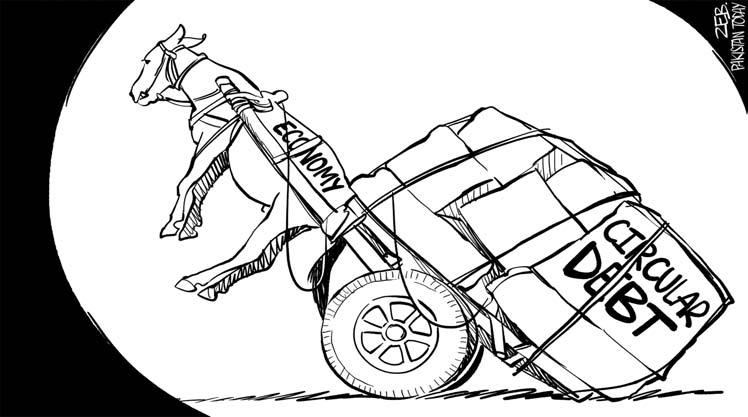
Biden’s Middle East strategy and its geopolitical implications
The Biden administration’s new Middle East strategy is forcing regional powers to reassess their geostrategic interests and act in a manner that might end several conflicts that have plagued the region

Dr Alon Ben-Meir
When Bidenwasrunningforpresident, he made it clear that if elected he would chart a new courseinaddressingtheproblems sweeping the Middle east and restore some normalcy in a region that has been awash in turmoil and bloodshed. he pledged to revive and further improve the Iran deal, bring an end to the war inYemen, support the resumptionofIsraeli-Palestinianpeacetalks,andresume American backing of the Kurds in Syria while putting the brakes on Turkish president erdogan’s misadventures. every state in the Middle east understands that America’s new approach cannotbeignoredbecauseoftheircontinuingdependency on the US in one form or another, and realizes that the regional geopolitical wind has shifted and all must now reassess their positions. Although Biden is intensifying his focus on theAsia Pacific region, the US’geostrategic interest and commitment to its allies in the Middle east remain the same, albeit Biden’s strategy substantially differs from his predecessor. Thus, he is creating new realities for the countries impacted, to which they must accordingly adjust. RetuRning to the iRan Deal: Biden’s decision to return to the Iran deal, to which Israel and SaudiArabia have vehemently objected, is now forcing both countries to reassess their positions. They know that reaching a new deal based on the original one with some improvement is imminent. They have also realized that Trump’s misguided withdrawal has only pushed Iran to build new advanced centrifuges, allowing it to enrich greater quantities and higher quality of uranium, bringing it ever closer to building a nuclear weapon. For Israel and SaudiArabia, the only practical option is to work with the US to ensure that the emerging new deal will be tightly monitored and an improvement of the prior deal, especially regarding the sunset clauses. normalizing bilateral relations between Washington and Tehran will ultimately provide the best option to prevent Iran from acquiring nuclear weapons in the longterm, which is of great concern to both countries. enDing the waR in Yemen: Biden’s call to end the devastating war inYemen did not fall on deaf ears in either Riyadh or Tehran. his decision to suspend arms shipments to Saudi Arabia sent a clear message to the kingdom that the war must end. The Mullahs in Iran also understand that there is not much left to gain from continuing the war. In fact, both SaudiArabia and Iran have long since concluded that their proxy war in Yemen is unwinnable and are looking for a face-saving way out. A power-sharing government between the houthis and the legitimate authority in Sanaa enjoys the support of Biden and seems to be gaining momentum in current Saudi-Iranian discussions (an open secret), which would potentially provide a lasting solution. the isRaeliPa l e s t i n i a n conflict: Biden’s position on the IsraeliPalestinian conflict has been very consistent since the time he was a senator, believing that a two-state solution remains the only viable option.hemovedtoresume financial aid to the Palestinians that was suspended by Trump, and told Israel to refrain from further annexation of any Palestinianterritoryand limit the expansion of existing Israeli settlementsintheWestBank. Given Israel’s failure to form a steady coalition government followingfourelections in two years, coupled with the political disarray among the Palestinians, it is unlikely that they can resume peace negotiations in earnest under the current circumstances. Moreover, both Prime Minister netanyahu and President Abbas, who are stuck in their old positions, must first leavethepoliticalscene before any peace talks can resume. WhiletheBidenadministrationhasconveyed to both sides that making significant concessions are a prerequisite to reaching an agreement, the US is rightfully focusing on confidence-building measuresfirst.Indeed,severalyearsofpeople-topeopleinteractionsonsocial,civil,economic,and academic levels are central to building trust, which is sorely absent but critical to paving the way for reaching a sustainable peace accord. aRResting eRDogan’s foReign misaDventuRes: Finally, President Biden’s decision to restore America’s support to the Syrian Kurds, who fought side-by-side US forces to oust ISIS and suffered thousands of casualties but were abandoned by Trump, is strategicallynecessarytorestoreAmerica’sinfluencein Syria, especially in shaping the final outcome to Syria’s civil war. Providing the Kurds with politicalbackingandfinancialsupportservesasawarning to erdogan to cease his continuing onslaught against them in the name of fighting terrorism. Moreover, erdogan’s coziness with Russia’s Putin, the West’s foremost adversary, his violation of US sanctions against Iran, and his destabilizing meddling in the internal affairs throughout the Middle east, the Balkans, southern europe, andAfrica have come home to roost. Biden’s decision to recognize the Armenian genocide further reinforced his message to erdogan that enough is enough and that the US no longer considers Turkey a strategic ally. President Biden’s initiatives on all these fronts are on the mark. It’s time to tell Iran that the US is not seeking regime change but will do everything in its powertopreventTehran from acquiring nuclear weapons, and would welcome gradual normalization of relations depending on Iran’s adherence to international norms of conduct. It’s time to tell the Saudis that the continuing war in Yemen has long since lost its relevance to its national security and that the US remains a steadfast ally on which the kingdom can rely. It’s time to tell Israel that the continuing occupation is neither acceptable nor sustainable,andthatanyfuture Israeligovernmentmust resignitselftotheestablishment of a Palestinian state that will live side-by-side Israel in peace and security. It’s time to tell the Palestinians that they must get their act togetheriftheywanttoestablish a state of their own and elect a new governmentthatunderstandstheneedtomakethe necessaryconcessionstoreachanenduringpeace. Finally, it’s time to tell erdogan that his days of pursuing foreign misadventures with impunity are over and he must now choose between east orWest if he wantsTurkey to remain a nATO member state. Contrary to Trump, who further aggravated the various endemic Mideast conflicts, Biden’s determination to change the dynamics may well succeed in advancing solutions that have eluded several of his predecessors.
While the Biden administration has conveyed to both sides that making significant concessions are a prerequisite to reaching an agreement, the US is rightfully focusing on confidence-building measures first. Indeed, several years of people-topeople interactions on social, civil, economic, and academic levels are central to building trust, which is sorely absent but critical to paving the way for reaching a sustainable peace accord Dr Alon Ben-Meir is a professor of international relations at the Centre for Global Affairs at NYU. He teaches courses on international negotiation and Middle Eastern studies. alon@alonben-meir.com
Editor’s mail
Send your letters to: Letters to Editor, Pakistan Today, 4-Shaarey Fatima Jinnah, Lahore, Pakistan. E-mail: letters@pakistantoday.com.pk Letters should be addressed to Pakistan Today exclusively
COVID-19 and emotional intelligence
One of the essentials to put an end to Swords of Damocles: COVID-19, which is hanging fear and anxiety on the heads of people, is emotional intelligence. emotional intelligence is an ability to manage and control one’s emotions and understanding the emotions of others as well. According to prior research, to succeed in any problem only 10% IQ matters, rest is the other things including emotional intelligence. Current pandemic has shed light to this big cheese: emotional intelligence, how much it is indispensable to have control on one’s nerves in this arduous situation which is costing much of the psychological side of the victims and caregivers. People of Pakistan already lack it. Majority is driven by emotions which are disappointing to sight. One of the significant reasons behind this is the absence of it in the curriculum of Pakistan’s education system. Children are taught lessons in science, mathematics, social studies in schools, but one subject which is missing in our education system is emotional intelligence. By analyzing the education system of the state it is evident that teaching methodologies and school activities do not possess the expertise to teach children how to seek stress management skills, and skills to fight with novel problems. Such activities lack in this education system despite the fact that it is the most demanding skill nowadays. Lamenting, Indeed! not only in schools but this strategy is missing in higher education as well. especially in COVID-19 crisis when students have to tackle every issue online it becomes tougher for them to handle the anxiety all alone sans friends and peers. But this is a high time to raise voice for it as well. Schools and universities can make it a blessing in a disguise by teaching skills for emotional intelligence. So in the future students who become adults and professionals are not driven by the emotions in their life. Imperative is it to implement. Furthermore, emotional intelligence is a pivotal feature of human development. Pakistan slows two points lesser than prior rating in Un human Development Index, it stands at 154th according to a report of 2020. Thus, it is a need of an hour to work on the emotional intelligence of students and professionals. ShEhErbano Tariq MulTan
Afghanistan in turmoil
AFGhAnISTAn has been a pathetic country confronting mass distraction of humans life, education development, social norms, women rights, mentality of masses & to other eco friendly organizations since Russian invasion 1979 and there after 9/11 attack 2001 impacts. The country becomes a hub for socio political interest resulted in daily bases bomb blasts & killings of innocents. Similarly another terrible explosions took place on 8 may inAfghanistan capital Kabul. Blasts were close to a secondary school have left more than 60 people died and hundreds were injured including innocent students. The environment of Kabul one again fell into mourning situation. The abandoned victim families were grumbling toward world leaders asking for peace & prosperity of their people as they are also human and has the fundamental right to live in liberty & acquire education. hope the dominant leaders along with Pakistan will play a vital role in peace process for the elimination of this massacre & assure priority of public safety till the reveal of peace in country. naqEEb ullah Duki, balochiSTan
Genocide in Palestine
ISRAeL braced for more protests on Saturday after violence at east Jerusalem’s flashpointAl-Aqsa mosque compound wounded more than 200 people as the international community called for calm after days of escalating tensions. Israeli police fired rubber-coated metal bullets and stun grenades towards rock-hurling Palestinians atAl-Aqsa as anger grows over the potential eviction of Palestinians from homes on land claimed by Jewish settlers in east Jerusalem. At least 205 Palestinians and 17 officers were injured in the night-time clashes at Islam’s third-holiest site and around east Jerusalem, Palestinian medics and Israeli police said, as thousands of Palestinians faced off with several hundred Israeli police in riot gear. Violence erupted on Friday when Israeli police deployed heavily as Muslims were performing evening prayers atAl-Aqsa during the holy month of Ramadan. Video footage from the scene shows worshippers throwing chairs, shoes and rocks towards the police and officers opening fire. Israeli police also closed gates leading to Al-Aqsa inside the walled Old City. The Palestine Red Crescent ambulance service said one of the injured lost an eye, two suffered serious head wounds, and two had their jaws fractured. Most were wounded in the face and eyes by rubber-coated rounds and shrapnel from stun grenades. AnAl-Aqsa official appealed for calm on the compound through the mosque’s loudspeakers. “Police must immediately stop firing stun grenades at worshippers, and the youth must calm down and be quiet. ” Tens of thousands of Palestinian worshippers earlier packed into the mosque on the final Friday of Ramadan, and many stayed on to protest in support of Palestinians facing eviction from their homes on Israeli-occupied land claimed by Jewish settlers in the Sheikh Jarrah neighbourhood of east Jerusalem. Calls for calm and restraint poured in from the United States and the United nations, with others including the european Union and Jordan voicing alarm at the possible evictions. “If we don’t stand with this group of people here, [evictions] will [come] to my house, her house, his house and to every Palestinian who lives here, ” said protester Bashar Mahmoud, 23, from the nearby Palestinian neighbourhood of Issawiya. Palestinian President MahmoudAbbas said he “held [Israel] responsible for the dangerous developments and sinful attacks taking place in the holy city ” , and called on the Un Security Council to hold an urgent session on the issue.Abbas praised the “courageous stand” of the protesters. Protest groups affiliated with hamas, rulers of the Gaza Strip, said they would resume demonstrations and the launching of incendiary balloons along the heavily guarded Gaza frontier. hamas has largely curtailed such actions over the past two years as part of an informal ceasefire that now appears to be fraying. In an interview with a hamas-run TV station, the group’s top leader Ismail haniyeh addressed Israeli Prime Minister Benjamin netanyahu by name, warning him not to “play with fire” . “neither you nor your army and police can win this battle, ” he said. “What’s happening in Jerusalem is an intifada that must not stop. ” ahMaD naDEEM lahorE
08 WORLDVIEW IndIa Is HIdIng Its covId crIsIs – and tHe wHole world wIll suffer for It
Guardian
ankita rao
afew years ago, as narendra Modi came into power, I worked on an investigative report about India hiding its malaria deaths. In traveling from tribal Odisha to the Indian national health ministry in new Delhi, my colleague and I watched thousands of cases disappear: some malaria deaths, first noted in handwritten local health ledgers, never appeared in central government reports; other malaria deaths were magically transformed into deaths of heart attack or fever. The discrepancy was massive: India reported 561 malaria deaths that year. Experts predicted the actual number was as high as 200,000. now, with Covid ravaging the country, desperate Indians have taken to Twitter to ask for oxygen cylinders or beg hospitals for an open bed. The crisis has been exacerbated by the government’s concealment of critical information. Between India’s long history of hiding and undercounting illness deaths and its much more recent history of restraining and suppressing the press, Modi’s administration has made it impossible to find accurate information about the virus’s hold in the country. Blocking that information will only hurt millions within the country. It will also stymie global efforts to stop the Covid-19 pandemic, and new variants of the virus, at India’s border.
Epidemiologists in India and abroad estimate that the country ’s official reported Covid-19 death toll – around 222,000 at time of publication – accounts for only a fraction of the real number. The director of the USbased Institute of Health Metrics and Evaluation has estimated that India is only detecting 3-4% of actual cases. Other experts point to total excess deaths in cities such as Mumbai as proof that there could be 60% to 70% more deaths from Covid-19 than the government is admitting to.
There are various reasons India could be cooking the books on Covid deaths. For one, the utter failure of the public health system makes it difficult to account for the millions of bodies passing through hospitals, clinics and those dying in their own home. Despite having become one of the largest economies in the world, Indian state and federal governments spend a dismal amount on healthcare, with an investment of less than 1% of its gDP, one of the lowest rates in the world.
But systemic failure is only one part of the puzzle. The reigning party of the Indian government touted its success in curbing the virus very early in the pandemic, and has never let go of that narrative. As bodies burned in funeral pyres across Uttar Pradesh in April, Yogi Adityanath – the state’s chief ministerandakeyModilackey–claimedthat everything was under control and repeatedly refusedtoannouncenewlockdownmeasures, even as he himself contracted Covid-19.
This denialist rhetoric is occurring at almost every level. Like India’s see-no-evil approach to malaria or tuberculosis, its Covid obfuscationsuppresses“badnews”inorderto buoythecountry ’sinternationalimageandthe governmentparty ’sdomesticstanding.notall countries with struggling health systems do this. Some actually at times overcount deaths fromothervirusesinordertogetmorehumanitarian aid. But undercounting disease is, in many ways, far more sinister. Modi’s government had a choice between saving face and saving lives, and has chosen mass death.
While undercounting disease is a longstanding problem in India, the assault on press freedom is far more recent. Since Modi came into power in 2015, the freedom of India’s expansive media culture has dramatically shrunk, according to sources including Reporters Without Borders. In the last few years,thegovernmenthassuedorprosecuted several news organizations and journalists, citingdefamationorotherevenmoredubious rationales. Controversial laws such as the 2000 Information Technology Act allow for what seem like increasingly frequent, and grossly arbitrary and politically motivated, crackdowns on freedom of speech and press.
Indian journalists tell me they are often asked to self-censor their reporting on the Covid-19 pandemic, as well as what they say on social media, for fear of inciting the ire of the government. Many were understandably incensed last week when the Indian central government reportedly madeTwitter and Facebook remove posts critical of the government’s Covid measures. Meanwhile, India continues to be one of the most dangerous places in the world for journalists to work, and more than 165 journalists have allegedly died of Covid-19 while covering the crisis itself. (Last month Kakoli Bhattacharya, an Indian journalist who worked as a news assistant for the guardian, died of Covid.) In the absence of trustworthy Covid information from their own government, Indians are mostly reliant on social media and foreign reporting for the story of what’s actually happening.
The result is a public health nightmare for India – and also, I fear, for the global community,which,justasmanycountriesare breathing a sigh of relief, could face another Covid wave that includes new variants. We can learn from other epidemics what that might look like: India was one of the last countries to eradicate polio, and is one of 15 countries that still have a significant number of people with leprosy. India also has the thirdlargestHIV/Aidsepidemicintheworld. India’sstruggleswithdiseasesthathavebeen eradicated or largely ameliorated elsewhere leaves a backdoor for global public health threats and costs billions of dollars in disease burden. These health crises also harm international travel, trade and other economic indicators,creatingnewchallengesnotonlyfor India but for its allies, as well.
India likes to tout itself as the world’s largest democracy – and use that moral authority to protect its standing in the global economy and the international diplomatic community. But with a dark curtain separating the reality of the country ’s Covid-19 crisis from the rest of the world, India’s standing and authority are at risk. If the country continues to choose political expediency over transparency in the days to come, the people of India, scrambling to protect their families, are the first victims, but far from the last.
MODI’S GOVERNMENT HAD A CHOICE BETWEEN SAVING LIVES AND SAVING FACE. IT HAS CHOSEN THE LATTER
Ankita Rao is a news editor at the Guardian US.

new Yorker
StEvE Coll

aMOng the world’s autocratic populists, Prime Minister narendra Modi, of India, is distinguished as a storyteller. He offers beguiling accounts of Hindu identity and Indian greatness, with the aid of allied newspapers and television networks, as well as on Twitter, where he has sixty-eight million followers and a phalanx of trolls. When the pandemic struck, last year, Modi summoned his loyal media barons and editors, who, according to the Prime Minister’s Web site, promised “inspiring and positive stories” about his government’s fight against the coronavirus. The country suffered tens of thousands of covid-19 deaths in 2020, but forecasts of even more dire outcomes did not materialize. In January, at Davos, Modi boasted that India had “saved humanity from a big disaster by containing corona effectively. ” He loosened restrictions and invited worshippers to the Kumbh Mela, a weeks-long Hindu festival that attracted millions of people. As spring arrived, he staged mass rallies during an election campaign in West Bengal, a state with a population of a hundred million.At a gathering onApril 17th, he extended his arms and proclaimed, “Everywhere I look, as far as I can see, there are crowds. ”
The coronavirus thrives off of complacent politicians.At the time of that rally, new infections in India, by official counts, had exploded to two hundred and fifty thousand a day, a figure that last week reached four hundred thousand. Shortages of oxygen and hospital beds have driven desperate citizens—and even hospital directors—to beg for help on social media. State police have threatened or filed preliminary criminal charges against some of those seeking aid, because the “rumours” they generate may “spoil the atmosphere, ” asYogiAdityanath, a Modi ally and the Chief Minister of Uttar Pradesh, India’s most populous state, put it.According to the Hindu, an Englishlanguage daily, he called for prosecutions under the national SecurityAct. OnApril 30th, India’s Supreme Court held that there should be no “clampdown” on those using social media to plead for oxygen or beds. Crematoriums are overwhelmed; photographs of makeshift funeral pyres have become iconic images of an unspeakable tragedy. Last week, at least a hundred and fifty people in India died of covid every hour. The surge reflects many factors, including the fragility of the underfunded health system. But, as Meenakshi ganguly, the South Asia director of Human Rights Watch, wrote last week, Modi’s government “appears obsessed about managing the narrative” rather than addressing urgent needs.
The BidenAdministration and other governments have dispatched planeloads of small oxygen-making plants and vaccine ingredients to new Delhi, to bolster India’s vaccine industry. The aid is needed, but it alone cannot address the scale of India’s suffering. The pandemic has laid bare—and exacerbated—the contours of global inequality. The conditions incubating India’s outbreak also exist in other emerging countries, such as Brazil and Argentina, where thousands perish daily. In the U.S. and a few other wealthy nations, about half of all adults have now received at least one vaccine dose, and economies are reopening, whereas in much of the rest of the world it will require many months—perhaps a year or two—before vaccination rates are likely to rise enough to suppress the virus. India’s crisis will make that campaign longer, since to address its own emergency new Delhi has suspended vaccine exports to covax, a World Health Organization project established to assure equitable access to vaccines in low-income nations.
Both India and SouthAfrica have asked the World Trade Organization to waive coronavirus-vaccine patent protections, arguing that this will jump-start manufacturing worldwide and speed global recovery. American and European pharmaceutical companies protest that waivers won’t work, because making the vaccines is too complex to scale up quickly. Last Wednesday, the Biden Administration departed from years of precedent to announce support for a temporary waiver of some patent protections. “The extraordinary circumstances of the covid-19 pandemic call for extraordinary measures, ” Katherine Tai, the U.S. trade representative, said. But it isn’t clear whether Biden’s decision can overcome European opposition at the W.T.O. in order to change existing treaty arrangements. InApril, in a signal of political opinion on the Continent, the European Parliament voted decisively against waivers of intellectual property.
The moral and public-health case for prioritizing rapid global vaccination over corporate profits is inarguable. (Last week, Pfizer reported that sales of its covid-19 vaccine during the first three months of the year brought in three and a half billion dollars.) But the patent dispute lies in the realm of “ vaccine diplomacy, ” a phrase that describes the use of supplies to win influence and that aptly evokes the cynical maneuverings of great-power politics. While we justly celebrate the heroic service of individuals during the pandemic—nurses, doctors, delivery workers, bus drivers—our governments have often acted with unapologetic selfishness in order to protect national interests. Like the climate emergency, the coronavirus has challenged political leaders to discover new models of collective survival that might overcome threats that even the most hardened borders cannot stop. The record to date is not encouraging.
India’s death toll from covid-19 has now officially crossed two hundred thousand, a figure that experts say is almost certainly an undercount. Yet Modi’s government continues to expend energy on censorship. The Wire, an independent news outlet, reported that on May 3rd Sun Hospital, in Lucknow, released an emergency announcement on social media that it was “not able to get enough oxygen supply, ” despite repeated pleas to the government. Appearing to disregard the Supreme Court’s ruling of three days earlier protecting such appeals, the state police alleged that the hospital didn’t really need oxygen. “no rumours should be spread to create panic among the people, ” a police statement read.
Last year, Amartya Sen, a nobel laureate best known for his work on the causes of famine, who is now eighty-seven, wrote in the guardian about his country ’s slide toward tyranny. “The priority of freedom seems to have lost some of its lustre for many people, ” he said, and yet “the growth of authoritarianism in India demands determined resistance. ” Modi, though, by rallying his followers and suppressing dissent, has weathered many previous challenges, and he is not likely to face another national election for several years. The history of independent India is one of political and humanitarian crisis followed by self-renewal, and the country ’s eventual recovery from covid-19 can hardly be doubted. Whether its democracy can also regenerate seems, at this dark hour, a less certain prospect.
India in crisis How IndIa Its crIsIs lIgHtens THE CORONAVIRUS THRIVES OFF OF COMPLACENT LEADERS, SUCH AS PRIME MINISTER NARENDRA MODI—AND HAS EXACERBATED THE CONTOURS OF GLOBAL INEQUALITY
As government fails in curbing COVID-19, a rush of volunteers and donors step in, perhaps weaving new levels of trust in India
Christian sCienCe Monitor
Editorial Board
For journalists in India, these are head-twisting days. The government’s failure to deal with a surge in coronavirus cases has turned the news media’s attention to a part of society that has responded well: the millions of volunteers and small-scale donors who are assisting sick and destitute people during a COVID-19 wave. For a country that has long ranked relatively low in charitable giving, India is coming on strong in weaving new levels of public trust. Stories of people feeding hundreds have gone viral. So have tales of social media “ warriors” helping people find medical supplies. “There is ... an impressive supply of ordinary citizens, charities, private companies and even the odd public servant taking their own initiatives to mitigate the crisis, ” reports The Economist. On social media, too, big-name observers note the rush of giving: “We’re total strangers to each other, we’re donating, we’re trying to figure a way to end each other’s pain and suffering, ” said famed Indian actor Kriti Sanon on Instagram. One reason for journalists suddenly discovering this burst of charity is that an estimated 90% of giving in India is local and religious-based. Most of India’s 4 million nonprofits are small with only a handful of employees. Philanthropy by the wealthy has certainly grown – it hit a record high last year and is expected to go even higher because of the response to COVID-19. But says Meenakshi Batra of CharitiesAid Foundation (CAF) India, “India has a strong culture of giving, but it largely remains unorganized and informal.Assisting others or helping strangers is viewed as a family or a community/religious obligation. ” Just before the pandemic, a CAF survey found 34% of Indians had helped a stranger, 34% had donated money, and 19% had done volunteer work. The next survey will likely raise those figures as a result of the pandemic.Also, people in India may have noticed the generous giving from Indians abroad, a diaspora estimated to be more than 32 million. Worldwide, levels of trust in government and news media declined last year, according to a survey by Edelman communications. But trust in nonprofits remains high, notably for their ethical practices, such as transparency, honesty, and public purpose. “Trust restores balance and enables partnership, ” the Edelman survey found. As the world watches India cope with a virus surge, it can also be witness to a society strengthening its social bonds. People are healing in more ways than one.
Ether bursts past $4,000; other cryptos firm
SINGAPORE
AGENCIES
Cryptocurrency ether broke past $4,000 on Monday, hitting a record high for the third consecutive session. Ether, traded using the ethereum blockchain, has soared almost 450% in 2021. It last bought $4,038 on the Binance exchange. Bitcoin rose roughly 2% to hit a three-week high. Dogecoin, launched as a parody cryptocurrency, steadied around 54 U.S. cents after dropping as low as 41.6 cents after Tesla boss and crypto enthusiast Elon Musk described it as a “hustle” during a television appearance.
SpaceX accepts dogecoin as payment to launch lunar mission next year
NEW YORK
AGENCIES
SpaceX will launch the “DOGE-1 Mission to the Moon” in the first quarter of next year, with Elon Musk’s commercial rocket company accepting the meme-inspired cryptocurrency dogecoin as payment. Geometric Energy Corporation announced the dogecoin-funded mission on Sunday, with the statement not disclosing the mission’s financial value. “We’re excited to launch DOGE-1 to the Moon!” , SpaceX Vice President of Commercial Sales Tom Ochinero was quoted as saying in the statement released by Geometric Energy. “This mission will demonstrate the application of cryptocurrency beyond Earth orbit and set the foundation for interplanetary commerce” . Musk said on Twitter inApril that SpaceX was going to put a “literal Dogecoin on the literal moon” . Dogecoin lost more than a third of its price on Sunday, after Musk called it a ‘hustle’during his guest-host spot on the “Saturday Night Live” comedy sketch TV show. Musk’s tweets this year turned the once-obscure digital currency, which began as a social media joke, into a speculator’s dream. Electric carmaker Tesla Inc, where Musk is CEO, said in February it bought $1.5 billion worth of bitcoin and would soon accept it as a form of payment for its electric cars, a large stride toward mainstream acceptance that sent bitcoin soaring to a record high of nearly $62,000.
Brent oil may retest resistance at $69.87
SINGAPORE
AGENCIES
Brent oil may retest a resistance at $69.87 per barrel, a break above could lead to a gain at $71.38. The contract has broken a lower resistance at $68.76. The next resistance will be at $69.87. The trending signals look a bit confusing, as the uptrend from $60.27 was thought to have reversed. However, the recovery of the price from the May 7 low of $67.39 is strong enough to indicate a continuation of the uptrend. A break above $69.87 will not only open the way towards $71.38, but also confirm a wedge, which indicates a target around $80. A break below $68.76, now a support, may cause a fall to $67.14. On the daily chart, with oil approaching a resistance at $70.75 again, it is doubtful that the contract retraces towards the March 23 low of $60.27. Each reader should consult his or her own professional or other advisers for business, financial or legal advice regarding the products mentioned in the analyses.
TArin vowS To TAkE AcTion AGAinST proFiTEErS
ISLAMABAD
STAFF REPORT
FEDERAL Minister for Finance and Revenue Shaukat Tarin on Monday vowed to take action against all those responsible for profiteering or hoarding.
He was chairing the National Price Monitoring Committee (NPMC) meeting at the Finance Division. Federal Minister for National Food Security and Research Syed Fakhar Imam, Adviser to the PM on Commerce Abdul Razak Dawood, SAPM on Finance and Revenue Dr. Waqar Masood, Secretary Finance Division, Secretary M/o NFS&R, Chief Secretaries of the provincial governments, Member PBS, MD Utility Stores Corporation, Chairperson CCP and other senior officers of various Ministries participated in the meeting.
The NPMC reviewed the price trend of essential commodities especially wheat flour, sugar, edible oil/ghee, pulses and chicken during the last week. While briefing the NPMC about weekly SPI, the Finance Secretary apprised that prices of seven basic commodities registered a decline whereas 26 items remained stable during the week under review.
Federal Minister for National Food Security and Research Syed Fakhar Imam updated the NPMC about the wheat procurement drive of the Provinces and PASSCO to ensure steady supply of wheat at fair prices during the current year. He further apprised the NPMC that Punjab is ahead of other Provinces in procurement of wheat to date.
The committee was informed that the summary to import 4 million metric tonnes wheat would be presented before the next ECC for requisite approval to build strategic reserves and to ensure smooth supply of wheat across the country.
While taking stock of the situation, the finance minister directed all provincial governments to ensure daily release of wheat at subsidised rates in compliance with the directives of the prime minister. He strictly urged the representatives of provincial governments to ensure uninterrupted daily release without fail.
While reviewing the price trend of basic commodities in international markets, the NPMC noted that major driver behind increase in prices of items of daily use is massive international price hike due to ongoing Covid-19 crisis.
The year-on-year (YoY) comparative analysis indicated that price of crude oil increased by 178pc in April 2021 as compared toApril 2020. Similarly, the price of sugar in international the market increased by 57pc in a YoY comparison.
Furthermore, international prices of palm oil, soyabeen oil and wheat also registered a continued upward trend which, in turn, led to sharp increase in prices of basic items in domestic markets.
Speaking on the occasion, the finance minister stated that Covid-19 crisis has fuelled food prices in international markets especially edible oil, sugar, tea and wheat. The government is making an all-out effort to ensure smooth supply of basic items through a network of ramzan Sahaulat Bazaars and chain of USCs outlets to ease shortages and mitigate price spike in local markets.
Competition Commission of Pakistan (CCP) chairperson presented findings before the committee regarding completion of recent inquiry in the Poultry Industry. The CCP underlined some anti-competitive conduct that led to surge in prices of Chicken feed, which, in turn, increased prices of chicken.
Tarin stressed that cartelisation would not be acceptable at any cost.
“Stern action would be taken by the provincial administrations and departments concerned to keep the prices of basic commodities in check, ” he reiterated.
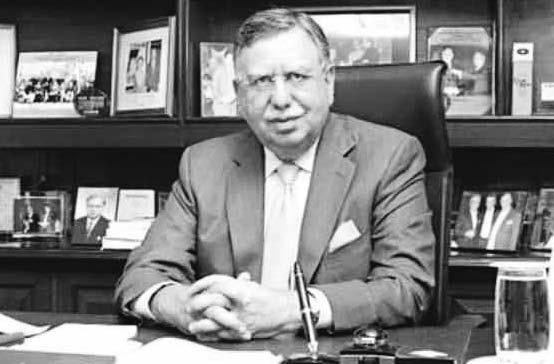
Traders decry forced lockdowns, warn of protests
MONITORING REPORT
Traders have asked Chief of Army Staff (COAS) Gen Qamar Javaid Bajwa to take notice of inappropriate use of army troops for forcibly closing down the businesses of small traders by the government and warned of a protest demonstration in front of the NCOC headquarters in Islamabad after Eid.
“This is for the COAS Gen Bajwa. The army was called by the government underArticle 245 to ensure implementation of the Covid-19 SOPs. But it was being used by the government to get the businesses of small shopkeepers forcibly closed which is a wrong act on the part of government, ”All PakistanAnjuman Tajran General Secretary Naeem Mir said in his video message.
“The traders especially the retailers/shopkeepers have expressed concerns over use of such a prestigious institution by the government for closing down their businesses on the pretext of Covid-19 SOPs and NCOC guidelines. If the army is used for ensuring wearing of masks by the people, controlling rush of people and getting the traders vaccinated, the traders would have appreciated it. But using army for closing down businesses is not good for its respect and prestige, ” Mir added.
“We congratulate the PTI government for snatching earnings of small traders, destructing their business, weakening them economically and suppressing them. You deserve medal for doing so, ” he said ecpressign sarcasm.The trade bodies’head further warned the government of a major sit-in and encircling of the NCOC headquarters in Islamabad after Eid. “And we will not end our protest till resignation of NCOC chiefAsad Umer, ” he added.
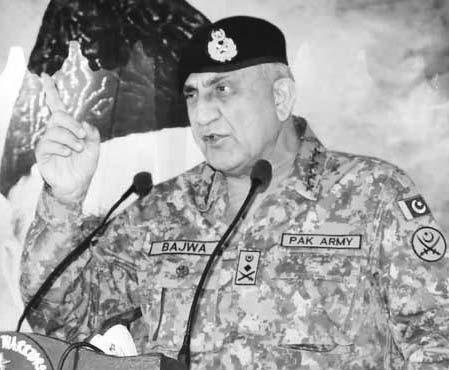
Govt to announce new rules for meeting FATF demands
MONITORING REPORT
The government is set to introduce new rules on forfeiture, management and auction of properties and assets relating to Anti-Money Laundering (AML) cases and transfer of investigations and prosecution of AML cases from police, provincial anticorruption establishments (ACEs) and other similar agencies to specialised agencies to achieve remaining benchmarks of the Financial Action Task Force (FATF). Accordingf to a report by Dawn, this is part of two sets of rules including the AML (Forfeited Properties Management) Rules 2021 and the AML (Referral) Rules 2021 under the National Policy Statement on Follow the Money approved by the federal cabinet meeting a few days ago. These rules and related notifications for certain changes in existing schedule of AntiMoney Laundering Act 2010 (AMLA) would come into force immediately to be followed by appointment of administrators and special public prosecutors for implementation. Based on these measures, the FATF would conclude if Pakistan has complied with three outstanding benchmarks, out of 27, that blocked its exit from the socalled grey list in February this year.
Exports to Australia surge 29pc in 10MFY21
ISLAMABAD
APP
Adviser to the Prime Minister on Commerce,Textile, Industry and Production Abdul Razak Dawood said on Sunday that the country ’s exports were gradually increasing and export to Australia jumped by 29 per cent during 10 months of the current fiscal year.
In a tweet, the adviser said that the country had witnessed $52 million worth of more exports toAustralia during July-April FY2021 as compared to the same period last year.
“We are glad to share that during Jul-April 2021, our exports toAustralia increased by 29% to USD 229 million as compared to USD 177 million in JulApril 2020. This is the highest 10months export to Australia ever, ” he tweeted.
The adviser said the Large Scale Manufacturing Industries (LSMI) recovery is led by the textile, beverages, pharmaceuticals, chemicals and automobiles sectors.
The process of de-industrialisation has been reversed and it bodes well for our exports, he said.
Dawood said that industrial growth is closely related to export growth as industrial output is a source for availability of exports.
He said that it is heartening to note that the overall output of LSMI increased by 9 per cent for July-March FY21 as compared to July-March FY20.
“I encourage exporters to aggressively export to this relatively untapped market and also commend the efforts of Ministry of Commerce trade and Investment Counselor MuhammadAshraf and urge him to facilitate our exporters and investors even more, ” he said.

IndIa’S CovId-19 CaSeS dIp from peaK, CaLLS for Shutdown mount
NEW DELHI
AGENCIES
CALLS grew for India to impose a nationwide lockdown as new coronavirus cases and deaths held close to record highs on Monday, increasing pressure on the government of Prime Minister Narendra Modi.
The health ministry reported 366,161 new infections and 3,754 deaths, off a little from recent peaks. India’s tally of infections now stands at 22.66 million, with 246,116 deaths.
As many hospitals grapple with an acute shortage of oxygen and beds while morgues and crematoriums overflow, experts have said India’s actual figures could be far higher than reported.
The 1.47 million samples tested on Sunday for Covid-19 were this month’s lowest yet, data from the state-run Indian Council of Medical Research showed. The figure compared with a daily average of 1.7 million for the first eight days of May.
Many states have imposed strict lockdowns over the past month while others have adopted curbs on movement and shut cinemas, restaurants, pubs, and shopping malls.
But pressure is mounting on Modi to announce a nationwide lockdown as he did during the first wave of infections last year.
He is battling criticism for allowing huge gatherings at a religious festival and holding large election rallies during the past two months even as cases surged.
“Afailure of governance of epic and historic proportions, ” Vipin Narang, a political science professor at Massachusetts Institute of Technology (MIT) in the United States, said on Twitter.
On Sunday, top White House coronavirus adviser Dr.Anthony Fauci said he had advised Indian authorities they needed to shut down.
“You ’ ve got to shut down, ” Fauci said on ABC’s “This Week” television show. “I believe several of the Indian states have already done that, but you need to break the chain of transmission. And one of the ways to do that is to shut down. ”
The Indian Medical Association (IMA) has also called for a “complete, wellplanned, pre-announced” lockdown.
New Delhi, the capital, entered a fourth week of lockdown, with tougher curbs such as the shutdown of the suburban rail network, while residents scrambled for scarce hospital beds and oxygen supplies.
“This is not the time to be lenient, ” Delhi chief ministerArvind Kejriwal said on Sunday.
“This phase is so tough, this wave is so dangerous, so many people are dying […] the priority at this hour is to save lives, ” he said in a televised address.
Late on Sunday, the northern state of Uttarakhand said it would impose a curfew fromTuesday (today) until May 18, just days after mass religious gatherings held in the state became virus super spreading events.
Shops selling fruits, vegetables and dairy items will stay open for some hours in the morning, while malls, gyms, theatres, bars and liquor shops are among the enterprises that will be shut, the government said.
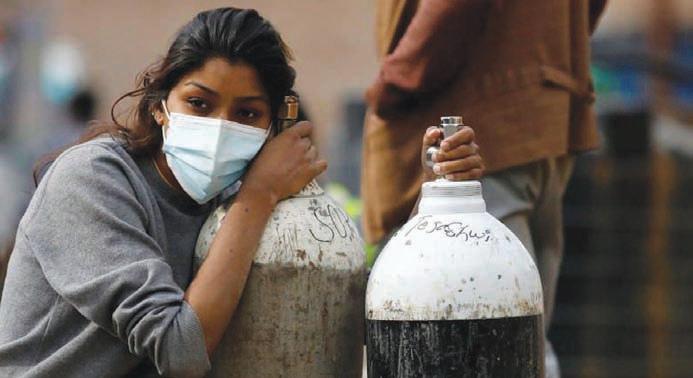
Sadiq Khan elected London mayor for another term
NEWS DESK
Sadiq Khan was re-elected London Mayor on Saturday as had been widely expected, providing some joy to the opposition Labour Party which has suffered a series of disappointing results in other local elections. Khan, who became the first Muslim and Pakistan-origin politician to head a major Western capital after his victory in 2016, saw off his main challenger, Shaun Bailey, the candidate from Prime Minister Boris Johnson’s Conservative Party. He won by 55.2 percent to Bailey ’s 44.8 percent in a result which had been widely predicted, although his winning margin was smaller than his victory five years ago. “I am deeply humbled by the trust Londoners have placed in me to continue leading the greatest city on earth, ” Khan said, who focused his campaign on creating jobs and boosting London’s tourism economy. “I promise to strain every sinew to help build a better and brighter future for London after the dark days of the pandemic. ” Khan, a former member of parliament who replaced Johnson as leader of the British capital with a population of almost nine million people, has faced criticism over rising violent crime in the capital, particularly stabbings involving teenagers. His record on the issue and other security issues led to a series of angry Twitter spats with former US President Donald Trump. Khan’s success comes after a bruising set of results for Labour in local elections in its former heartlands in central and northern England — known as the party ’s “Red Wall” — which followed a disastrous performance in the 2019 national vote. While Johnson has enjoyed wide success elsewhere in England, the opposition party has become increasingly dominant in the British capital. Analysts attribute this to the city ’s younger, more ethnically-diverse and more pro-European Union population, which unlike most of England, overwhelmingly opposed Brexit.
US government declares emergency after cyberattack on major fuel pipeline

WASHINGTON
AGENCIES
The US government declared a regional emergency Sunday as the largest fuel pipeline system in the United States remained largely shut down, two days after a major ransomware attack was detected.
The Colonial Pipeline Company ships gasoline and jet fuel from the Gulf Coast of Texas to the populous East Coast through 5,500 miles (8,850 kilometres) of pipeline, serving 50 million consumers.
The company said it was the victim of a cybersecurity attack involving ransomware -- attacks that encrypt computer systems and seek to extract payments from operators. "This Declaration addresses the emergency conditions creating a need for immediate transportation of gasoline, diesel, jet fuel, and other refined petroleum products and provides necessary relief, " the Department of Transportation said in a statement.
The emergency declaration allows for fuel to be transported by road to the affected states: Alabama, Arkansas, District of Columbia, Delaware, Florida, Georgia, Kentucky, Louisiana, Maryland, Mississippi, New Jersey, New York, North Carolina, Pennsylvania, South Carolina, Tennessee, Texas and Virginia.
The declaration also provides regulatory relief to commercial motor vehicle operations that are part of the emergency support efforts.
Colonial said earlier Sunday that it had opened some smaller delivery lines, but the main system was not yet back up and running. "While our mainlines remain offline, some smaller lateral lines between terminals and delivery points are now operational, " Colonial said in a statement, adding it would "bring our full system back online only when we believe it is safe to do so. " "We have remained in contact with law enforcement and other federal agencies, including the Department of Energy who is leading the Federal Government response, " it added. "Maintaining the operational security of our pipeline, in addition to safely bringing our systems back online, remain our highest priorities. " CALLS FOR IMPROVED OVERSIGHT: Commerce Secretary Gina Raimondo told CBS on Sunday that authorities were working to prevent any disruption to supplies. Colonial, based in the southern state of Georgia, is the largest pipeline operator in the United States by volume, normally transporting 2.5 million barrels of gasoline, diesel fuel, jet fuel and other refined petroleum products per day. Theattackpromptedcallsfrom cybersecurityexpertsforimprovedoversightoftheindustry to prepare for future threats. "This attack is unusual for the US. But the bottom line is that attacks targeting operational technology -the industrial control systems on the production line or plant floor -- are becoming more frequent, " Algirde Pipikaite, cyber strategy lead at the World Economic Forum's Centre for Cybersecurity, toldAFPon Saturday. "Unless cybersecurity measures are embedded in a technology's development phase, we are likely to see more frequent attacks on industrial systems like oil and gas pipelines or water treatment plants. " Gas prices jumped in the United States on Sunday following the ransomware attack. Analysts warn that prices could climb even higher if the pipeline is not reopened soon. Oil prices rose more than one percent Monday. The United States was rocked in recent months by news of two major cybersecurity breaches -- the SolarWinds hack that compromised thousands of US government and private sector computer networks and was officially blamed on Russia; and a potentially devastating penetration of Microsoft email servers.The latter is believed to have affected at least 30,000 US organisations including local governments and was attributed to an aggressive Chinese cyberespionage campaign.
Putin reviews Russian military might as tensions with West soar
MOSCOW
AGENCIES
President Vladimir Putin reviewed Russia's traditionalWorldWarTwo victory parade on Sunday, a patriotic display of raw military power that this year coincides with soaring tensions with the West.
The parade on Moscow's Red Square commemorating the 76th anniversary of the Soviet Union's victory over Nazi Germany in World War Two featured over 12,000 troops and more than 190 pieces of military hardware, including intercontinental ballistic missile launchers, and a fly-past by nearly 80 military aircraft under cloudy skies.
Putin, who has been in power as either president or prime minister since 1999, stood beside Soviet war veterans on a review platform set up on Red Square. "Unfortunately there are once again attempts to deploy many things from the ideology of the Nazis, those who were obsessed with a delusional theory on their exclusiveness. And not only (by) all sorts of radicals and international terrorist groups, " Putin said in what appeared to be a common denunciation of the West but what theKremlinsaidwasaimedattheriseofneoNazism in Europe. "Russia will again and againupholdinternationallaw,butatthesame time we will firmly protect national interests (and) ensure the security of our people. "
Thisyear'sparadeprecedesparliamentary elections in September and comes at a time when Moscow's relations with the West are acutely strained over issues ranging from the conflict in Ukraine to the fate of jailed Kremlin criticAlexei Navalny.
The United States and Russia have expelledeachother'sdiplomatsinrecentmonths in a series of retaliatory moves and Moscow and EU member states have been involved in a similar tit-for-tat diplomatic dispute.
Sunday's parade follows a massive show of Russian military force near the borders of UkraineandinCrimea,whichRussiaannexed from Kyiv in 2014, and an uptick in fighting in eastern Ukraine between Russian-backed separatists and Ukrainian government forces.
Moscowsaidthebuild-up,whichalarmed the West, was a training exercise in response to activity by the NATO military alliance and Ukraine. It has since ordered a withdrawal of some troops. Smaller military parades took placeonSundayincitiesacrossRussiaandin annexed Crimea, and at Russia's Hmeymism air base in Syria.
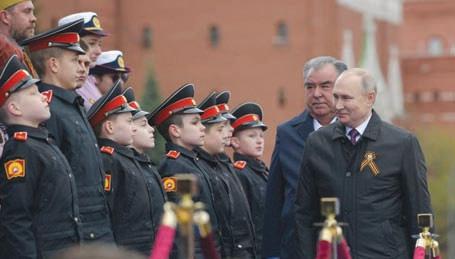
11 shaheen's Career-Best 'fIve-for' sees PakIstan to BIg wIn over ZImBaBwe
HararE
Agencies
sEAMER Shaheen Afridi took a career best five for 52 as Pakistan beat Zimbabwe by an innings and 147 runs early on the fourth day of the second Test at Harare Sports Club on Monday.
It was the fourth successive series win for Pakistan on a southernAfrica tour.
Pakistan needed just one wicket at the start of the day and it took a little over 20 minutes for Shaheen to induce an edge from Luke
Jongwe (37) to wicketkeeper Mohammad Rizwan, wrapping up the contest as Zimbabwe were bowled out for 231 in their second innings. Pakistan won the first Test by an innings and 116 runs and have now completed a comprehensive series victory, which followed limited overs success in SouthAfrica.
The tourists had elected to bat and posted a massive 510 for eight declared, boosted by a maiden double-ton for opener Abid Ali, who spent almost 11 hours at the crease for his 215.
Seamer HasanAli claimed 5-27 in Zimbabwe's reply, skittling the home side for 132, before NaumanAli (5-86) and Shaheen did the damage with the ball in the followon innings, claiming all the wickets to fall. Only Regis Chakabva (80) and stand-in skipper Brendan Taylor (49) offered much resistance to the Pakistan victory charge, with most of the damage done on the third day when the visitors picked up 15 wickets.
PAKISTAN 510 FOR 8 DEC (ABID 215 NOT OUT, AZHAR 126, NAUMAN 97, MUZARABANI 3-82) BEAT ZIMBABWE 132 (CHAKABVA 33, HASAN 5-27) AND 231 (CHAKABVA 80, SHAHEEN 5-52, NAUMAN 586) BY AN INNINGS AND 147 RUNS

Zverev rallies to beat Berrettini and lift second Madrid Open title

Madrid
Agencies
Alexander Zverev recovered from a set down to defeat Matteo Berrettini 6-7 (8/10), 6-4, 6-3 and win the Madrid Open for a second time Sunday as he clinched a fourth Masters 1000 title.
The German fifth seed recorded his third consecutive top-10 victory this week, having eliminated five-time Madrid champion Rafael Nadal and Dominic Thiem to reach the final. Zverev, last year’s US Open runner-up, added to his 2018 Madrid triumph as he denied Berrettini successive titles following the Italian’s win in Belgrade last month. “It is great (to win this title), especially after losing my last three finals I played at Masters 1000 events, ” Zverev said. “This is definitely special and I just want to enjoy this one. ” Zverev was full of praise for his Italian rival.
“Matteo was an extremely difficult opponent, because I had not faced anyone whoservesat235km/h,whodominatesthe ball like him. “Against Rafa (Nadal) and Dominic (Thiem), the matches were different, although they are obviously excellent clay players, perhaps the two best at the moment.Against Matteo, it was extremely difficult to just put the ball back in the court. ” Zverev is targeting a second Rome title at the Foro Italico next week. He captured his first Masters there in 2017 before also winning in Montreal later that year.
“Rome is also an event I like and enjoy, so I hope I can perform in the same way as I did here and we will see how it goes there. I feel awesome, ” said Zverev.
AfterRome,theGermanstarwilltarget amaidenGrandSlamtitleatRolandGarros. However,hehasyettogetbeyondthequarter-finals in Paris. “To play well at Roland Garros, you have to play well during the season on clay. In that sense, it’s (Sunday ’s win) important to me, ” said Zverev. 'GreATFiGHT': “I think we had a great fight. It’s tough, this sport is crazy. It’s a really good moment of my career but at the same time it’s not that great because I lost, ” said Berrettini.
World number 10 Berrettini landed the first blow as he broke Zverev to move 4-3 ahead in the opening set at the Caja Magica, only to drop his service the very next game. The Italian raced into a 5-0 lead in the tie-break but Zverev clawed it back to 5-4 before two set points slipped beyond the grasp of Berrettini.
Zverev failed to take a set point of his own at 7-6 and then saved a third, but a double fault at 8-8 handed Berrettini another opportunity that this time he did not let go to waste. It was the first set lost by Zverev, whose last clay-court title had come in Geneva in 2019. Zverev secured the only break of the second set in game nine, when Berrettini double faulted, to send the match into a decider.The German then broke to move 3-2 ahead in the final set and closed out victory after two hours and 40 minutes with another break, earning his second title of the season after taking home theAcapulco crown in March.

BaBar named ICC men’s Player of the month for aPrIl 2021
islaMabad
APP
Pakistan cricket team captain BabarAzam was named the International Cricket Council's (ICC) Men’s Player of the Month forApril 2021 due to his consistent and outstanding performances across all formats in the recently-concluded series against South Africa. He was chosen as theApril winner by fans and the ICC voting academy.Australian female playerAlyssa Healy was named the ICC Women’s Player of the Month forApril 2021.Azam's match-winning 82-ball 94 in the third ODI against SouthAfrica helped him gain 13 rating points to reach a career-best 865 points. He also contributed 122 from 59 balls in Pakistan’s successful chase in the third match of a T20I series against the same opposition. “The world bats in two ways in white-ball cricket. One way is to destroy attacks with muscle and force and then there is the BabarAzam way, like conducting a batting symphony with punch, panache and flair, and he deserves to win this award, " said Ramiz Raja — representing the ICC's voting academy — as he commented onAzam's performance inApril.Azam also became the first Pakistan captain to win his first four opening Tests, according to a statement from the Pakistan Cricket Board.
La Liga: Hazard’s last-gasp equaliser rescues Real Madrid against Sevilla in dramatic clash
Madrid
Agencies
Eden Hazard’s 94th-minute equaliser salvaged Real Madrid a dramatic 2-2 draw against Sevilla on Sunday as an extraordinary penalty decision swung La Liga’s title race back inAtletico Madrid’s favour.
Zinedine Zidane’s side had levelled through MarcoAsensio midway through the second half and thought they had a penalty when Karim Benzema was brought down after rounding Sevilla goalkeeper Yassine Bono. ButVAR prompted referee Juan Martinez Munuera to check an Eder Militao handball a few seconds before, with a huge decision seeing Madrid’s penalty cancelled and a spot-kick awarded to Sevilla instead.
Ivan Rakitic converted and while Madrid still managed to hit back in injury time,Toni Kroos’shot deflecting in off Eden Hazard’s foot, the draw hands the advantage back to Atletico at the end of another dramatic weekend in the Spanish title race.
“They have to explain the exact rules of thehandstome, ”saidZidaneafterwards. “But now we have to think about the next game. It is not up to us now, but we will fight to the end, to the death. ” After Barcelona and Atletico played out a goalless draw on SaturdayatCampNou,thesecondinstalmentofLa Liga’s blockbuster weekend also finished honours even, meaning the situation at the top is unchanged with three games now remaining.
Atletico are two points clear of both Real Madrid and Barcelona, with the title very much back in their hands.
ASevilla victory might have given them an outside chance but instead they remain six points back and are surely out of the running.
“We’re disappointed but we are not going to give up, ” said Sevilla coach Julen Lopetegui. “We are going to try to keep this dream going a little longer. ” With a superior head-to-head record over Barcelona, Real Madrid scraping a draw could also yet prove decisive, given they only have to overtake one team now instead of two.
“It’s a shame but we’re alive, ” said Luka Modric. “We have seen that everyone is dropping points so you have to have faith. ”
Hazard had to come off the Real bench afterhiscontroversialreactiontotheChampions League defeat by Chelsea and while the equaliserwaseventuallycreditedtohim,there was hardly a sense of redemption given how littletheBelgianknewaboutit.Sevillahad75 per cent of the ball in the first 10 minutes but itfeltlikemore,withMadridchasingshadows and incapable of escaping their own half.
They scored with their first attack, Benzema rising above Jules Kounde to head in, only for the goal to be chalked off, with Alvaro Odriozola offside in the build-up.
Madrid looked jaded, the usually reliable Modric guilty of sloppy passes while Kroos and Casemiro struggled to affect the game.
Sevilla took the lead in the 22nd minute and it was brilliantly worked, a short freekick down the right improving the angle before Rakitic’s cool header down gave Fernando Reges the chance. He dummied past the diving Casemiro before slotting in. Asensio’s rApid response: Madrid emerged early after half-time. Vinicius Junior poked onto the outside of the post after a clever short corner before Modric departed for Asensio, who scored 65 seconds after coming on. Sevilla’s Joan Jordan was caught in midfield and Benzema sped away. Asensio looked like he had overrun the ball but it was returned to him by Kroos and he swept first time into the net.
Madrid had the momentum and they thought they had a penalty before the pendulum swung one way and then the other in a matter of seconds. Sevilla’s corner was cleared and Benzema was sent through oneon-one, rounding Bono and going down for what looked an obvious spot-kick.
PM directs fresh Probe into hudabia case against sharifs
HUDAIBIA MONEY LAUNDERING MODEL ADOPTED BY SHARIF'S IN LATER CASES, PM TOLD

ISLAMABAD
MiAn AbrAr
PRIME Minister Imran Khan on Monday directed the government’s legal team to conduct a fresh investigation into the Hudaibia Paper Mills case of the Sharif family and take it to a logical conclusion.
The decision was taken after the legal team of the federal government briefed Prime Minister Imran who soon after landing from a successful visit of the Kingdom of Saudi Arabia, convened an important meeting at his Bani Gala residence to discuss and develop a strategy on Shehbaz Sharif’s bid to travel abroad.
According to reliable sources, the meeting convened by Prime Minister Imran decided to re-investigate the Hudaibia Paper Mills case which the legal aides of the PM believed was the most important source of corruption in the Sharif family.
The legal team told the PM that later on the same method of money laundering was adopted by the Sharif family.
The meeting was also attended by Federal Minister Fawad Chaudhry, Asad Umar, ShehzadAkbar, and others.
Sources said that during the meeting, the prime minister was briefed on the government’s decision to challenge the bail awarded to Shehbaz. The meeting also discussed a strategy to deal with the situation if Shehbaz filed a contempt of court petition in Lahore High Court.
Sources also said that Shahbaz Akbar briefed the prime minister on the court decision regarding Shehbaz ’s departure abroad. Akbar also briefed on the possible legal options left with the legal team of the Pakistan Muslim League-Nawaz president. The sources said that the prime minister held consultations regarding the recourse to the court.
The sources said that the prime minister also took important leaders into confidence about his visit to SaudiArabia.
It may be mentioned here that Prime Minister Imran returned home after a threeday visit to SaudiArabia early Monday. Senator Faisal Javed Khan also announced the return of the PM on social media.
Later, Fawad Chaudhry, Minister for Information and Broadcasting told the media that today, the legal team gave a detailed briefing to Prime Minister Imran regarding the cases of Shehbaz.
“Hudabia Papers case is the most important source of corruption in the Sharif family, with Shehbaz Sharif and Nawaz Sharif as the main accused in the case, the same method used to send money out of Hudabia was later adopted in each case. Therefore, it is very important to bring this case to a logical conclusion, ” he concluded.
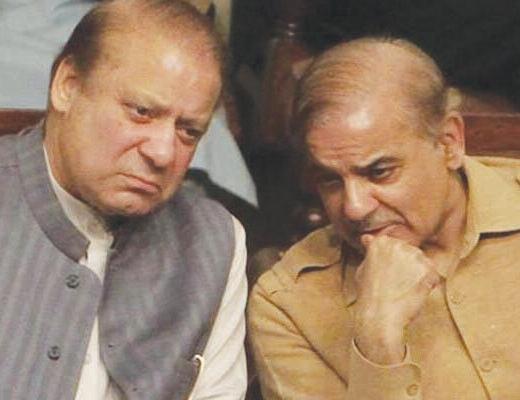
Jammu & Kashmir not India’s internal matter: FM
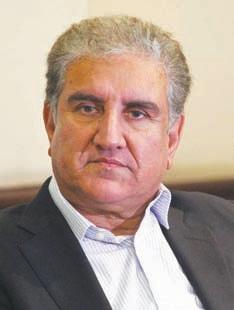
ISLAMABAD
APP
Foreign Minister Shah Mahmood Qureshi Monday categorically said Jammu and Kashmir was not India’s internal matter and the final settlement of the dispute lay in the resolutions of the United Nations Security Council (UNSC).
“Let me be clear: Jammu & Kashmir is an internationally recognised dispute on the UN Security Council agenda, ” he said in a tweet.
The foreign minister mentioned that the UNSC resolution called for “free and impartial plebiscite under” the UN auspices to resolve the dispute.
“Nothing about J&K can be India’s internal matter, ” he said.
Last month, FM Qureshi had said that Pakistan has never avoided peace talks and wanted to live in peace with all its neighbours, including India, but New Delhi would have to restore the semi-autonomous status of occupied Kashmir. Qureshi had made the remarks while speaking at a news conference in the United Arab Emirates (UAE) during a three-day official visit.
“Both India and Pakistan will have to think about their bilateral ties, ” Qureshi had said. “Pakistan is ready to talk with India if it takes back its steps of August 5. Pakistan cannot ignore the Kashmir issue. ”
In August 2019, India stripped the held region of its special status and took direct control over it, sparking civil unrest. Islamabad has since maintained it is open to talks if New Delhi reverses its decision.
The foreign minister had added that Pakistan desired peace in the region because peace would create more economic opportunities.
His statements had come days after Reuters reported that top intelligence officers from both countries held secret talks in Dubai in January in a new effort to calm tensions.
Citing sources, the report had said that officials from India’s Research and Analysis Wing (RAW) and Inter-Services Intelligence (ISI) travelled to Dubai for a meeting facilitated byAbu Dhabi.
Following the January meeting, Pakistan and India announced they would stop crossborder shooting along the Line of Control (LoC) which has left dozens of civilians dead and many others maimed.
Both sides have also signalled plans to hold elections on their sides of Kashmir this year as part of efforts to bring normalcy to a region riven by decades of bloodshed.
The two have also agreed to dial down their rhetoric, the people Reuters spoke to said.
But as Qureshi welcomed mediation efforts by the UAE, he told Khaleej Times that he was not planning to meet his Indian counterpart in the country. Qureshi and Subrahmanyam Jaishankar are visiting the Gulf state at the same time. “I am here for a bilateral visit. I am not here for an India-specific agenda, ” Qureshi told the publication, which published a video excerpt of the interview.
“We welcome third party facilitation […] But no matter what friends like the UAE say, the initiative has to be indigenous, ” he added.
Iran confirms talks with Saudi Arabia, promises best efforts
AgencIeS
Iran confirmed publicly for the first time on Monday that it is in talks with its regional arch-rival Saudi Arabia, saying it would do what it could to resolve issues between them.
“De-escalation of tensions between the two Muslim countries in the Persian Gulf region is in the interest of both nations and the region, ” foreign ministry spokesman Saeed Khatibzadeh said in a televised weekly news conference.
Iran was waiting for the outcome of the talks, he said: “We welcome resolving of the issues that have existed between the two countries […] We will use our best efforts in this regard. ”
Ambassador Rayed Krimly, head of policy planning at Saudi Arabia’s foreign ministry, last week told Reuters that talks between Saudi Arabia and Iran were aimed at reducing regional tensions. He said it was too early to judge the outcome and Riyadh wanted to see “ verifiable deeds” .
Iran and SaudiArabia have been locked in a rivalry that has played out in proxy conflicts across the region, fromYemen to Syria to Iraq. The two countries cut diplomatic ties in 2016. Middle East officials and sources said last month that they had held two rounds of talks.
The arrival of President Joe Biden in the United States has altered the diplomatic calculus across the Middle East. Washington aims to restart a nuclear deal with Iran that Biden’s predecessor Donald Trump abandoned, and has called for Saudi Arabia to end a war against Yemen’s Houthi forces.
SomesourcestoldReuterslastmonththatTehranhadpromised to use its influence to halt Houthi attacks on SaudiArabia, in return asking Riyadh to support the nuclear talks. Nuclear talks in Vienna between Tehran and world powers aim to bring Washington and Iran back into full compliance with the nuclear deal. In retaliation for sanctions reimposed since 2018 by Trump, Iran has breached nuclear restrictions under the pact.
